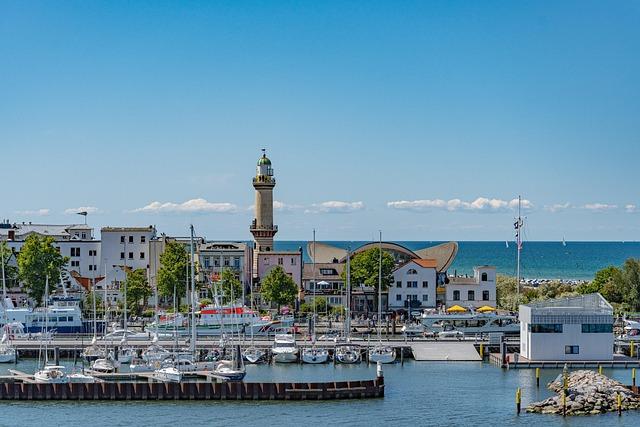In a significant endorsement of Moldova’s economic resilience, Fitch Ratings has affirmed the country’s long-term foreign-currency issuer default rating at ‘B+’, maintaining a stable outlook. this decision reflects the agency’s recognition of Moldova’s efforts to bolster economic stability amidst ongoing challenges, including geopolitical tensions and domestic reforms. As Moldova navigates its path toward greater economic integration and stability, the affirmation serves as a signal to investors and stakeholders about the nation’s financial trajectory. This article delves into the factors influencing Fitch’s rating decision, the implications for Moldova’s economy, and the broader context of fiscal reforms and international relations that shape the nation’s outlook.
Fitchs Affirmation of Moldovas Credit Rating and Its Implications

Fitch Ratings has reaffirmed Moldova’s ‘B+’ credit rating with a stable outlook,indicating a level of confidence in the country’s economic resilience despite ongoing challenges. This decision comes amid an environment characterized by significant geopolitical tensions and economic pressures that have affected many countries in the region. The stable outlook reflects Fitch’s anticipation that Moldova will continue to implement necessary reforms that could enhance fiscal stability and economic growth, thereby providing a cushion against potential external shocks.
The affirmation holds several implications for Moldova’s economic landscape, especially in terms of attracting foreign investment and maintaining investor confidence. Key aspects of this rating include:
- Fiscal Discipline: Continued efforts in managing public finances may support the growing stability of the economy.
- Structural Reforms: Ongoing reforms aimed at improving governance and reducing corruption will be crucial to gaining further credit upgrades.
- Geopolitical Risks: Moldova must navigate its geopolitical scenario effectively to sustain support from international partners.
| Rating | Outlook | Main Factors |
|---|---|---|
| ‘B+’ | Stable |
|
Understanding the Key Drivers Behind the B+ Rating for Moldova

The affirmation of Moldovaãs ‘B+’ rating by Fitch Ratings reflects a blend of resilience and challenges within the nation’s economic framework.Analysts point to several key factors influencing this stable outlook, including:
- Diversified Economy: Moldova’s economy has seen gradual diversification, reducing its historical reliance on a few key sectors.
- Structural Reforms: Ongoing reforms aimed at improving governance, transparency, and the business environment have bolstered confidence among investors.
- Remittances: A significant influx of remittances from Moldovan expatriates continues to support domestic consumption, providing a cushion against external shocks.
- International Support: Continued financial assistance from international organizations reinforces fiscal stability and promotes development.
On the other hand, potential risks remain present that could undermine growth prospects, including:
- Political Instability: Frequent changes in government and policy direction may deter long-term investment.
- External Vulnerabilities: Moldova’s economy is susceptible to regional geopolitical tensions and economic conditions in neighboring countries, particularly the EU.
- Debt Levels: High public debt and structural weaknesses in public financial management could constrain fiscal policy options.
the ãB+ã rating illustrates Fitch’s acknowledgment of the grappling balance between economic potential and inherent challenges faced by the nation, signaling close monitoring in the coming periods.
Analyzing the Stable Outlook: Economic Factors at Play

The affirmation of moldova’s ‘B+’ rating by Fitch reflects significant resilience and adaptability in its economic framework amidst various challenges. Key economic indicators, such as GDP growth and inflation rates, play a crucial role in shaping this stable outlook. Structural reforms implemented in recent years have bolstered investor confidence, leading to a more favorable climate for business operations. Among the factors contributing to this stability are:
- Diverse export base: Moldova has managed to diversify its exports, reducing reliance on a limited number of markets.
- Inflation control measures: The National Bank of Moldova has successfully implemented policies to manage inflation, maintaining it within acceptable parameters.
- Foreign investment influx: Increased foreign direct investment (FDI) signals growing international confidence in Moldovaãs economic prospects.
With respect to fiscal health, the government’s prudent management of public finances contributes substantially to the country’s economic stability. Public debt levels remain reasonable relative to GDP, allowing for enduring fiscal policies. Moreover, constructive engagement with international financial institutions continues to bolster Moldova’s development efforts. Factors influencing fiscal stability include:
| Indicator | 2023 Forecast | 2024 Projection |
|---|---|---|
| Public Debt to GDP | 40% | 38% |
| GDP Growth Rate | 3.5% | 4% |
| Inflation Rate | 5% | 4.5% |
Risks and Challenges Facing Moldovas Financial stability

Moldova’s financial stability is under constant pressure from various external and internal factors that could undermine its economic resilience. Among these challenges, the country faces significant political instability, which has historically hindered effective governance and economic reform. The impact of ongoing geopolitical tensions, particularly due to Moldova’s proximity to the conflict in Ukraine, adds another layer of risk. Inflationary pressures have surged in recent years, driven by supply chain disruptions and rising energy costs, further straining household incomes and purchasing power. this has led to increased public discontent, which can affect fiscal policy decisions and investor confidence.
Additionally, Moldova’s dependence on foreign investments and remittances makes it vulnerable to changes in the global economic landscape.The high level of public debt poses significant risks, especially in times of market volatility, while the reliance on a limited number of sectors for economic growth can lead to economic shocks.Regional instability, coupled with the need for reforms in banking and financial regulations, continues to challenge the country’s potential for a stable financial trajectory. Addressing these issues requires substantial commitment from the government, alongside assistance from international partners to foster sustainable economic development.
Recommendations for Strengthening Moldovas Economic Resilience

To bolster economic resilience,moldova should prioritize diversification of its economic sectors. This approach can mitigate risks associated with dependence on specific industries and external markets. Key strategies may include:
- Encouraging growth in the technology and innovation sector to foster new job creation and attract foreign investment.
- Promoting agricultural modernization through sustainable practices that enhance productivity and reduce vulnerability to climate change.
- Investing in infrastructure to improve connectivity within the country and with regional partners, facilitating trade and mobility.
Additionally, enhancing public financial management will be crucial for maintaining fiscal stability. Implementing measures such as:
- Adopting clearer budgetary frameworks that promote transparency and accountability in government spending.
- Strengthening the tax collection system to increase revenue, ensuring that public services and investments are well-funded.
- Fostering regional cooperation and partnerships to share resources, access new markets, and develop joint initiatives that can drive economic growth.
Future Prospects: What the Rating Means for Investors in Moldova

The reaffirmation of Moldova’s ‘B+’ rating by Fitch, accompanied by a stable outlook, carries significant implications for investors considering opportunities in this Eastern European country. A stable rating suggests a degree of resilience in Moldova’s financial framework, indicating that, despite past challenges, the government’s economic policies are on a constructive trajectory.Investors are likely to interpret this as a sign that, while the country still faces hurdles, there is potential for steady growth and decreased risk. This outlook creates a more favorable investment climate, attracting both local and foreign capital which could ignite business development across various sectors.
Moreover, the rating reinforces the importance of continuous reforms aimed at enhancing governance, improving public finances, and fostering a business-friendly environment. As Moldova seeks to align more closely with European standards, investors may find opportunities in numerous sectors, including infrastructure, agriculture, and renewable energy. The governmentãs commitment to structural reforms can further bolster investor confidence, leading to increased foreign direct investment (FDI) inflows. This could result in a positive feedback loop where increased economic activity contributes to higher ratings in the future, enhancing Moldova’s position as an attractive market in the region.
Closing Remarks
Fitch’s affirmation of moldova’s ‘B+’ rating, accompanied by a stable outlook, underscores a cautious optimism regarding the country’s economic resilience and strategic reforms. This rating reflects a balance between the challenges Moldova faces, such as external economic pressures and domestic political dynamics, and the potential for growth shaped by effective governance and international support. As Moldova continues to navigate its socio-economic landscape,stakeholders will be closely monitoring future developments,particularly in areas such as infrastructure investment and fiscal management,which could influence its creditworthiness and overall financial stability. The affirmation is a significant signal to investors and policymakers alike, highlighting the importance of sustained efforts to enhance the country’s economic framework in the face of evolving challenges.
















